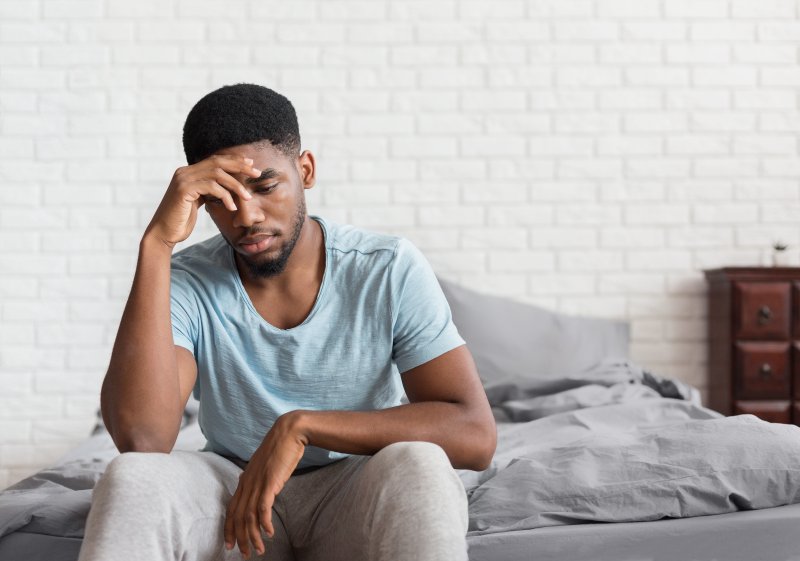
There are plenty of treatment options available for those suffering from depression, but around 20% to 30% of people with depression and other mood disorders find that the existing therapies do not help. There could be a variety of reasons for this, but one possible explanation is the presence of sleep apnea. More and more studies point to a link between sleep apnea and depression that suggests that treating the former could be a necessary step to treating the latter. Read on to learn more about the link between these conditions.
What Do the Studies Say?
The Journal of Clinical Sleep Medicine reports that over 70% of people with sleep apnea also experience depression symptoms. In fact, the two conditions share so many symptoms – such as fatigue, lack of energy, difficulty concentrating, memory loss, and losing interest in your hobbies – that one can potentially be misdiagnosed as the other. The link is such that depression can cause sleep apnea symptoms to surface while conversely sleep apnea can make existing depression worse, leading to something of a vicious cycle.
In general, the severity of sleep apnea is connected to the risk of depression. More severe sleep disorders are more likely to lead to depressive symptoms. In any case, though, having your sleep apnea treated as soon as possible is of the utmost importance for your mental and overall health.
What Treatments are Available for Sleep Apnea and Depression?
Sleep apnea can be treated in a variety of ways. The most famous method is using a CPAP machine to provide a steady flow of oxygen throughout the night in order to keep breathing consistent. However, those who cannot tolerate a CPAP machine should consider using an oral appliance instead; the device repositions the jaw and tongue to keep the airway unobstructed throughout the night. Surgery is also sometimes a viable solution, but it’s reserved for very specific cases. For example, if you have enlarged tonsils or adenoids that often get in the way of breathing, they can be removed to improve your sleep apnea symptoms.
If your sleep apnea is successfully treated, it will likely have a positive impact on your depressive symptoms. Of course, every patient is different, so it’s important to be aware of your mental state and how it’s changing over time. If you still experience depression even after sleep apnea treatment, you’ll want to speak to a professional about other potential solutions.
You don’t have to let sleep apnea and depression define how you live your life. By recognizing the potential symptoms of both conditions and acting to have them treated in as timely a manner as possible, you can enjoy more restful nights and more enjoyable days once again.
About the Author
Dr. Mitch Conditt has over 35 years of dental experience. In 2009, he was diagnosed with obstructive sleep apnea. Since finding lasting relief, he decided to dedicate himself to helping other sleep apnea patients via oral appliance therapy. If you schedule an appointment at his Fort Worth practice, he can diagnose your symptoms to determine whether they point to sleep apnea and create an appropriate treatment plan. Set up your consultation today by visiting his website or calling (817) 527-8500.
